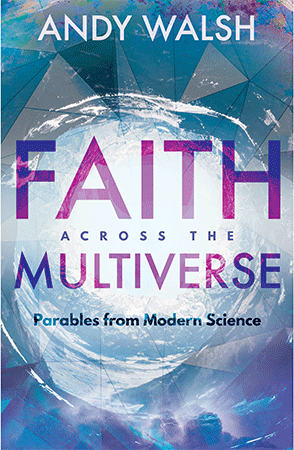
The following is a reflection on superhero storytelling inspired by Avengers: Infinity War. I have done my best to avoid spoilers, but if you know nothing about the film’s story and want to keep it that way until you see it, you may wish to save this for later.
What does it look like to have a theology but not a religion? The answer may now be showing at a theater near you. Avengers: Infinity War, the 19th and latest installment in Marvel’s ambitious serial storytelling project, advances the metaphysical aspirations of superheroes that have roots all the way back to Superman’s 80-year-old origin story as a baby placed in a space-basket to spare his life. At this point, those aspirations aren’t even subtext; actual Norse god of thunder Thor is an Avenger. These stories have a lot ideas about power & control, will & freedom, the infinite and the divine. But are they interested in applying that theology as a religion?
Expressly fictional religions have transitioned into the real world. Famously, nearly 1% of England and Wales reported their religion as “Jedi” on the 2001 census, more than those reporting Sikhism, Judaism or Buddhism. Similar responses at lower rates have been seen in other countries around the world. In the United States, Jedi groups have sought and obtained tax-exempt status. Some self-identified Jedi may be trying to make satirical political points, but others genuinely seem interested in building a religion inspired by the Star Wars films. Or perhaps Jediism is better understood as a life philosophy, since neither the real-world movement nor its fictional namesake confess faith in any sort of deity.
The Marvel movies are the other way ’round. They have fairly strong notions of what a god is like, but are less interested in how mortals should live as a result. And strength, or perhaps more properly power, is central to that theology. Thor, portrayed by Chris Hemsworth and his pair of Platonic ideal biceps, has appeared in six films and has grown more powerful with each one. In Infinity War he and the rest of the heroes face off against Thanos. Thanos has very specific and rationalized, though not rational, plans and a singular will to see them realized. His goal in the story is to obtain magical accessories with the power to directly and immediately impose that will on the entire universe. The movie leaves little doubt that if he had such power, it would make him effectively divine.

At least, for a specific concept of the divine, namely the one we discussed last week. Thanos seeks the power to translate his will directly into reality, circumventing ordinary cause and effect. Granted, Marvel has attempted to put a thin veneer of science on its more fantastical elements with quotes about magic being science we don’t yet understand and a visual approach to sorcery that is indistinguishable from gesture-based holographic computer interfaces used by tech-savvy characters like Iron Man and Shuri. Those concessions may help keep fans who desire a relatable “world outside your window” story of near-future sci-fi. But at some point we cross the line into supernatural territory, where true power is demonstrated by side-stepping science, not harnessing it.
Not only does this theology equate divinity with supernatural power to the exclusion of power manifest as nature, it also seems to only consider power. Being taken seriously as a deity doesn’t seem to require compassion or wisdom or any other traits that Christians ascribe to God. Of course, Thanos is squarely the villain of the film, due in no small part to his conspicuous failings in these areas. But that doesn’t seem to disqualify him from godhood, just from being the protagonist. In fact, his dispassionate rationalization for his plan to wipe out half of all life in order to save the rest has a flavor of “God only gives us what we would ask for if we knew what he knows.” In this case, there are reasons to doubt whether Thanos knows enough; after all, if his concern is limited food, eliminating half of all life would eliminate half of all food too, providing no improvement proportionately speaking.
Perhaps this is why the films are less interested in the kind of religion that follows from their theology. If one’s notion of the divine offers little to emulate, then there is little to teach. That’s fine for movies; we don’t necessarily need a new religion based on Spider-Man and Captain America. But I wonder what the theology of these stories reveals about our theology of real life. If our understanding of God is focused solely on power and control, I can see where believing in him is as unappealing as rooting for Thanos.
Does Thor offer a better alternative? In his first film, we learn that his access to superhuman power depends on his worthiness. In theory, that condition could introduce compassion and wisdom to the mix. But while there’s some suggestion that worthiness requires humility and selflessness, other heroes who are just as humble and selfless, if not more, are not also worthy. And over time, the dependence on worthiness faded as Thor’s character arc focused on self-reliance over external validation. His admittedly entertaining and engaging story is about the humanizing of a superhuman, which does not provide a template for how humans can relate to the truly divine.
And so we are left with a theology that seems to believe if there is a God, we wouldn’t want to know him or have him in charge. The best of humanity is the best we can hope for. And while I do agree that the best of humanity should be recognized and celebrated, my empirical curiosity wonders where such a theology would take us. A Christian theology flowing out of the story of the Gospel provides a religion that has been tested by time. I suspect it still has a place in the future no matter how many other stories we tell.

If you found this post interesting, you might be interested in my forthcoming book on science, theology and nerdy pop culture: Faith across the Multiverse. Now available from pre-order from Amazon and Barnes & Noble; more links on the publisher’s site.
Andy has worn many hats in his life. He knows this is a dreadfully clichéd notion, but since it is also literally true he uses it anyway. Among his current metaphorical hats: husband of one wife, father of two teenagers, reader of science fiction and science fact, enthusiast of contemporary symphonic music, and chief science officer. Previous metaphorical hats include: comp bio postdoc, molecular biology grad student, InterVarsity chapter president (that one came with a literal hat), music store clerk, house painter, and mosquito trapper. Among his more unique literal hats: British bobby, captain’s hats (of varying levels of authenticity) of several specific vessels, a deerstalker from 221B Baker St, and a railroad engineer’s cap. His monthly Science in Review is drawn from his weekly Science Corner posts — Wednesdays, 8am (Eastern) on the Emerging Scholars Network Blog. His book Faith across the Multiverse is available from Hendrickson.

Nice reflection Andy. I think this leads into a great “part 2” article on how the gospel of Jesus portrays a different and counter cultural Deity at work in the universe.
Thanks Will. I had some follow-up thoughts this week, although maybe in a different direction than you had in mind. https://blog.emergingscholars.org/2018/05/science-corner-sympathy-for-the-bedeviled/